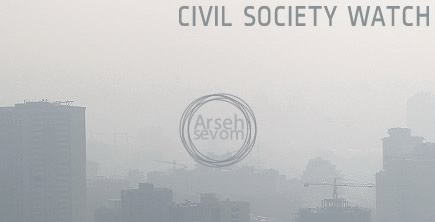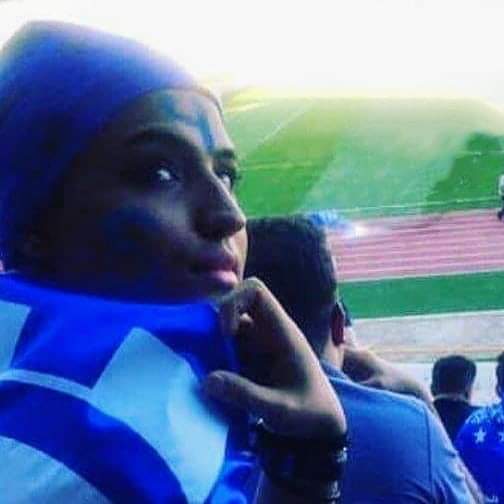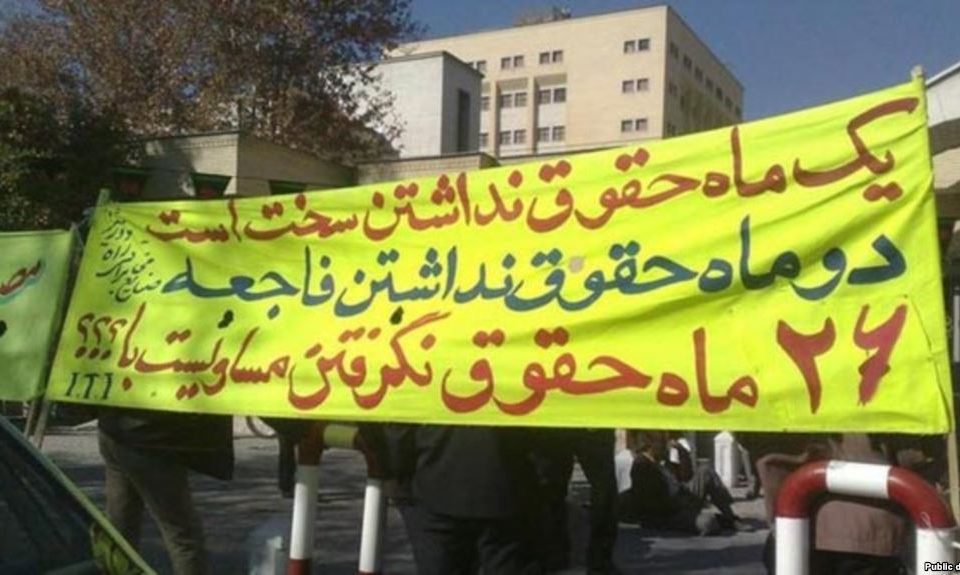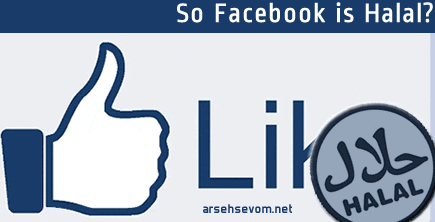
Facebook: Halal? Makruh? Haram?
December 24, 2012Hila Sedighi Reads Autumn’s Rain
January 10, 2013We may have taken a break, but the news did not. So happy new year to all of our readers and a quick rundown of what’s in store in 2013’s first weekly review. We’ve got letters for you this week. The most heartbreaking comes from 21-year old Zanyar Moradi who begs the world to take notice as he and his cousin face imminent execution. Shirin Ebadi calls on UNICEF to visit children living in prison with incarcerated mothers. The children of former presidential candidates Mehdi Karroubi and Mir Hossein Moussavi have called for an end to their house arrest. The Supreme Leader has been deluged with letters demanding free and fair elections.
Meanwhile, Tehran’s polluted skies literally take your breath claiming more than 4000 lives over one year. Three Iranian writers are honored with Hellman/Hammett grants for their commitment to free expression, and a group of Iranians in London form an organization to encourage reading. Iran is said to be working on controls for social networking sites as it steps up its harassment of the families of journalists. Finally, after her release from prison, former Karoubi advisor Hengameh Shahidi has turned her attention to art.

Isa Saharkhiz, Keyvan Samimi and Hila Sedighi are three of the 41 writers to receive 2012 Hellman/Hammett grants, awarded by Human Rights Watch, for their commitment to free expression and their courage in the face of persecution.
Mr. Saharkhiz a veteran journalist arrested shortly after the June 2009 presidential elections. To this day he remains in prison, his health deteriorating. He has long been a voice against government crackdowns on reformists and the lack of media freedom.
Mr. Samimi has been active defending the rights of journalists and the right to education. Since 2009, he has been imprisoned in Iran and is now kept in solitary confinement in Rajaei Shahr prison outside of Tehran. Like many of the prisoners of conscious in prison in Iran, his health is steadily worsening, and he has been consistently denied medical leave.
Ms. Sedighi is a poet whose public recitation of her poem Autumn’s Rain, referring to missing classmates after the demonstrations following the 2009 elections, moved many. She was arrested and interrogated by the Iranian authorities, apparently only because of her poetry, and given a “postponed” sentence of four months in prison.
A video of her recitation can be seen on YouTube.
Radio Zamaneh [fa] reminds us of other Iranian writers who received the grant in the past, including Ahmad Shamloo, Houshang Golshiri, Parvin Ardalan, Bahman Ahmadi Amuoee, Asieh Amini, Mohammad Sedddigh Kaboudvand, Ali Afshari and Abbas Maroufi.
A group of Iranian migrants in London have launched a website called ‘Nogaam’ [fa]. This initiative is in response to the developing trend in electronic books and readings in the Iranian cyber community, and against the censorship Iranians face inside Iran. Through their interactive and innovative way, they form a bridge between readers, writers, translators and sponsors to promote a culture of reading culture Iranians. They offer the electronic version of the book to their readers for free after providing the author with the required fee.
Iran’s cyber police are developing software to control social-networking sites, reports Radio Farda [en]. The site reported Iran’s Police Chief, Esmail Ahmadi Moghadam as saying:
“The smart control of social-networking sites not only prevents their harm, but also allows people to benefit from their useful parts.” Moghadam said the establishment last year of a Supreme Council of Cyberspace was a factor in reaching that conclusion.
Facebook was unblocked for a couple of ours in Iran last week. Does this have anything to do with Ayatollah Khamenei’s Facebook debut?
Cyber police, known as FATA, has not stopped hunting Iranian activists in the blogsphere even after the scandalous case of Sattar Beheshti. The latest, and probably youngest, victim of this force, reported by Radio Zamaneh [fa], is a 14-year-old boy living in Karaj who has been arrested for publishing “obscene stories” on his blog. This unfortunately is not an isolated incident and reports of arrests for online activities have been published before.
We’ll Take Care of Your Family
A new wave of harassment of journalists, activists, and their family members ihas begun. With the presidential election around the corner, the Iranian security apparatus has renewed its hasrassment of the family members of BBC Persian staff. In response to this, over a hundred journalists have released a statement [fa] condemning such behavior and calling on the Iranian authorities to take immediate actions to end it. The statement continues:
“Such behavior undoubtedly portrays an image of the Islamic Republic of Iran which is in contradiction with what of the one claimed by Iranians some 35 years ago through their revolution.”
In its new report, Reporters Without Borders has also expressed its grave concern over the arbitrary arrests of journalists and netizens and the threats made against the families of foreigners and Iranians working for media organizations in Iran.
The Iran Human Rights Documentation Center [IHRDC] [en] reports the transfer to medical facilities of the infants of two Bahai mothers imprisoned in Semnan. This came after the denial of repeated requests from the mothers for medical care for their infants. The organization states:
“Denying medical care to children, as well as subjecting children to the unsanitary conditions of Semnan prison are clear violations of the Convention on the Rights of the Child. The Islamic Republic of Iran is a party to this convention, albeit with reservations.”
Shirin Ebadi, the Iranian Nobel Peace laureate, has written [fa] to Executive Director of UNICEF Anthony Lake on this matter. In her letter, she called for UNICEF Iran to visit prisons and monitor the conditions of children. Small children frequently accompany their incarcerated mothers and guardians in the Iran’s prisons. Many suffer from inadequate facilities for children while in detention—some of which has lasting mental and physical consequences.
Hengameh Shahidi, a Mehdi Karroubi advisor on women’s issues, journalist, and human rights activist, has turned her attention to art. The Financial Times [en] reports that after being released from Evin prison – “where she was held in solitary confinement and allegedly tortured – art offered her a release.” The story discussed her motivations, goals, and hopes.
“I still do not understand how a violent atmosphere has woken up a delicate part of me,” she says.
Ms. Shahidi hopes her paintings can help raise awareness about the approximately 200 political prisoners still in prison.
“I started my paintings with a dream of freedom and breathing in an atmosphere in which there is no fighting because both sides [the regime and the opposition] have been losers.”

People in Tehran are not enjoying their sky and beautiful city these days as they used to. “Just leaving the house makes my chest hurt,” a Tehran resident told Arseh Sevom.
Increasing pollution and smog is causing eyes to tear and dizziness. It has forced the closure of schools and public institutes two days in a row this week.
An advisor to Iran’s health minister, Hassan Aqajani, appeared on state television to report on the effects of high levels of pollution in Tehran. He reported that 4460 fatalities were connectect to foul air during the previous year. Aqajani reported a significant increase in emergency calls when air pollution deteriorates in Tehran. “The hospital admission for heart diseases increased by 30% following the recent air quality alert in Tehran.”
The New York Times [en] reports that for nearly a week officials have called on residents to remain inside and avoid the downtown
“…with air pollution at such high levels, venturing outside could be tantamount to “suicide,” state radio reported Saturday.”
Low quality gasoline has been blamed for the dramatic increase in pollution in Iran’s big cities. Iran has begun refining its own oil in response to sanctions.

“Such a violation of the primary human rights and the current laws and regulations of the country…cannot be happening without authorization from the country’s top officials. After close to two years of house arrest, no official authority has taken responsibility for the judicial state of our loved ones, who are of concern to a large portion of the Iranian people.”
This is part of the statement from the children of detained opposition leaders Mir Hossein Mousavi, Zahra Rahnavard, and Mehdi Karroubi, as reported by Radio Zamaneh [en]. The children call on authorities to “show the courage to take responsibility for the illegal arrests” and release them immediately without making unfolded excuses.
See You at the Polling Station
As we approach the next elections, it is worth mentioning the change in tone and attitude of some pro-government politicians towards Karrubi and Mousavi and the reformist party. ILNA [fa] quoted Habibollah Asgarouladi, a leading conservative figure, as saying that Mousavi and Karrubi are not seditious and the “real sedition” came from the US, Britain, and other “arrogant powers.”
Mehr [fa] reports that the ban on the reformist paper Shargh was lifted last week. Many are wondering if these signs for reformists and opposition to participate in the upcoming elections?
There have been a myrad of letters and discussions calling for free and fair elections written by intellectuals, activists, and even some politicians. Many letters challenge the Supreme Leader on the authenticity of previous elections.
Ayatollah Khamenei gave a speech during the week of Janurary 8 warning against enemy plots to prevent high turnout in the election. He admonished Iranians not to criticize the presidential vote and to avoid tension, emphasizing that the elections should be free. Khamenei stated,
“Haven’t more than 30 elections held in Iran in the past three decades free? Where on earth have elections been so free as in Iran?”
The next five months leading to election may be quite unpredictable in the political arena of Iran, but one can hope that it won’t turn out as another participatory dictatorship.
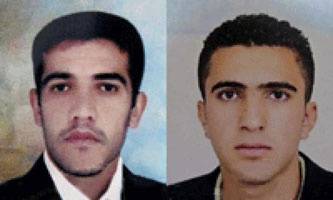
Cousins Zanyar and Loghman Moradi await execution
There has been widespread concern about the two ethnic Kurds, Zanyar and Loghman Moradi, cousins, who have been on death row in Iran since 2010. The father of Zanyar, Eghbal Moradi, was interviewed by the Iran Human Rights Documentation Center. He testifies about repeated assassination attempts against him, stating that the arrests came after he was severely wounded after being shot in the back nine times.
The IHRDC has reported on the persecution of the Kurds in detail in their report On the Margins: Arrest, Imprisonment and Execution of Kurdish Activists in Iran Today. Arseh Sevom’s summary can be read here.
In an open letter to young people all over the world, Zanyar writes:
Is this world so cruel to watch both my cousin and I hang in public from a crane on the street? And not say anything? And not do anything?
I realize that it is only through the Internet that I am voicing to you my fear and my plea to you. So please be patient with me and give me a few minutes and seconds of your time and hear me. It is hard to be twenty-one and to face my death. To live everyday with the nightmare of death, to shiver every time I hear their footsteps coming to take me to my death.
